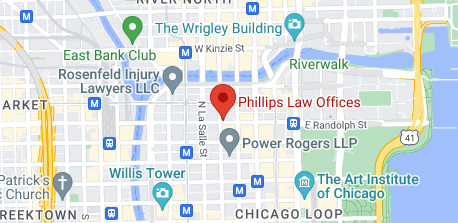Have you ever wondered how much money Medicaid might ask for if you get a settlement? Well, it all depends on a few things. First, Medicaid might want some of the settlement money to cover the medical bills they paid for you. But don’t worry, they won’t take everything. They’ll only take what they need to cover those bills.
Secondly, the amount Medicaid takes could vary based on your state’s rules and the type of settlement you receive. It might seem complicated, but there are ways to figure it out. You can talk to a lawyer or contact your local Medicaid office for help understanding how much they’ll take from your settlement
Basics of Medicaid
What Medicaid is and who it serves
Medicaid is a government program in the United States that helps people with low income pay for medical costs. It’s designed to assist individuals and families who may not be able to afford healthcare on their own. This program serves a wide range of people, including pregnant women, children, elderly individuals, and people with disabilities. It’s especially important for those who don’t have health insurance through their jobs or cannot afford private health insurance.
Eligibility criteria for Medicaid benefits
To qualify for Medicaid benefits, individuals must meet certain criteria based on factors like income, household size, age, and disability status. Each state sets its own eligibility requirements within federal guidelines, so these criteria can vary from one state to another. Generally, eligibility is determined by factors such as income level relative to the federal poverty level, citizenship or legal residency status, and specific circumstances such as pregnancy or disability.
Legal Settlements Overview
Defining legal settlements and their types
Legal settlements are agreements reached between parties involved in a legal dispute without going to trial. They often involve one party paying money or providing some other form of compensation to the other party. There are different types of legal settlements, including those related to personal injury cases, where someone is harmed due to another’s negligence or intentional actions. Medical malpractice settlements occur when healthcare professionals are found to have caused harm or injury to a patient due to negligence or substandard care.
Importance of settlements for compensating injury victims
Settlements are crucial for compensating injury victims because they provide a way for them to receive financial support without the time and uncertainty of a trial. In many cases, settlements can help victims cover medical expenses, lost wages, pain and suffering, and other damages resulting from the injury or harm they experienced. Additionally, settlements can offer a sense of closure and resolution to the parties involved, allowing them to move forward without the stress and expense of prolonged litigation.
Medicaid Liens on Settlements
Explaining Medicaid’s right to claim reimbursement from settlements
When someone receives Medicaid benefits for medical expenses related to an injury, and that person later receives a settlement or judgment from a lawsuit related to that injury, Medicaid may have the right to claim reimbursement. This means that Medicaid can ask for part or all of the settlement money to cover the medical costs it paid on behalf of the individual. This is because Medicaid is entitled to be reimbursed for the medical care it provided if the individual receives compensation from a liable party.
Understanding Medicaid lien process and requirements
The process of Medicaid placing a lien on a settlement involves notifying the parties involved, such as the individual receiving the settlement, their attorney, and the entity responsible for the settlement (such as an insurance company). Requirements for the Medicaid lien process vary by state, but generally, Medicaid must follow specific legal procedures to assert its claim to reimbursement. This may include filing paperwork with the court overseeing the settlement or negotiating directly with the parties involved. Once the settlement is finalized, Medicaid will typically receive its reimbursement from the settlement funds before the individual receives any remaining money.
Factors Influencing Medicaid Lien Amount
Types of settlements subject to Medicaid liens
Medicaid liens can apply to various types of settlements, particularly those where the individual received Medicaid benefits for medical expenses related to the injury or harm for which they are receiving compensation. These settlements may include personal injury claims, medical malpractice cases, wrongful death suits, and other legal actions where the individual received Medicaid assistance for healthcare costs.
Calculating Medicaid’s share based on settlement type and amount
The amount that Medicaid can claim from a settlement depends on factors such as the type of settlement and the total amount received. Generally, Medicaid’s share is calculated based on the portion of the settlement that represents reimbursement for medical expenses covered by Medicaid. This calculation can vary depending on state laws and regulations governing Medicaid liens. Typically, Medicaid will assert its claim to a portion of the settlement funds to recover the medical costs it paid on behalf of the individual. The specific formula for determining Medicaid’s share can be complex and may require consultation with legal professionals familiar with Medicaid lien laws in the relevant jurisdiction.
Understanding Subrogation
Defining subrogation and its role in Medicaid lien process
Subrogation is a legal principle that allows one party (such as Medicaid) to step into the shoes of another party (such as an individual receiving Medicaid benefits) to pursue a claim or right. In the context of the Medicaid lien process, subrogation means that Medicaid can assert its right to reimbursement from any settlement or judgment obtained by the individual for injuries for which Medicaid paid medical expenses. Essentially, Medicaid “steps into the shoes” of the individual to recover the costs it incurred.
How Medicaid subrogation affects settlement distribution
Medicaid subrogation can impact how settlement funds are distributed among the parties involved in a legal case. Before the individual receives any portion of the settlement, Medicaid may assert its subrogation rights to recover the medical costs it paid on behalf of the individual. This means that Medicaid will typically receive its share of the settlement first, which can reduce the amount available to the individual for other purposes, such as covering remaining medical expenses, lost wages, or pain and suffering. Understanding and addressing Medicaid subrogation is an important aspect of negotiating and finalizing settlements in cases where Medicaid benefits were received.
Limits on Medicaid Recovery
Federal and state laws governing Medicaid recovery from settlements
Medicaid recovery from settlements is regulated by both federal and state laws. These laws establish the framework within which Medicaid can seek reimbursement for medical expenses from settlements or judgments obtained by individuals. Federal laws set out overarching principles and requirements, while state laws provide specific rules and procedures that govern the Medicaid recovery process within each state.
Exceptions and limitations on Medicaid’s recovery rights
While Medicaid generally has the right to recover medical expenses from settlements, there are exceptions and limitations to this recovery. Some states have enacted laws that limit the amount Medicaid can recover, particularly in cases where the individual’s recovery would be significantly reduced if Medicaid were to claim reimbursement. Additionally, there are exceptions for certain types of settlements, such as those involving hardship or where the individual’s recovery is deemed to be primarily for non-medical damages like pain and suffering. Understanding these exceptions and limitations is crucial for ensuring fair and equitable distribution of settlement funds.
Negotiating Medicaid Liens
Strategies for negotiating Medicaid liens
Negotiating Medicaid liens involves employing various strategies to potentially reduce the amount that Medicaid claims from a settlement. One common strategy is to review the itemized list of medical expenses covered by Medicaid to ensure accuracy and challenge any potentially inflated charges. Another approach is to negotiate with Medicaid to lower the amount they are seeking as reimbursement, often by highlighting factors such as financial hardship or the existence of other claims on the settlement funds. Additionally, it may be possible to negotiate a compromise or settlement with Medicaid, offering them a lump sum payment that is less than the full amount they are seeking.
Working with legal professionals to minimize Medicaid’s share
Navigating the negotiation of Medicaid liens can be complex, so it’s essential to work with legal professionals who are experienced in this area. Attorneys who specialize in Medicaid lien negotiation can provide valuable expertise and guidance throughout the process. They can help analyze the Medicaid lien, identify potential strategies for reducing the amount owed, and negotiate with Medicaid on behalf of the individual. By working with legal professionals, individuals can maximize their chances of minimizing Medicaid’s share of the settlement and retaining a larger portion of the funds for themselves.
Legal Assistance for Medicaid Recipients
Resources available for Medicaid recipients facing settlements
Medicaid recipients facing settlements have access to various resources to help them navigate legal matters. These resources may include legal aid organizations, pro bono legal services, and community advocacy groups that specialize in assisting individuals with Medicaid-related issues. Additionally, individuals can seek guidance from attorneys who have experience with Medicaid lien issues and settlement negotiations. These resources can provide valuable support and guidance to Medicaid recipients as they work through the complexities of their legal situations.
Importance of legal counsel in navigating Medicaid lien issues
Legal counsel plays a crucial role in helping Medicaid recipients navigate lien issues related to settlements. Attorneys who specialize in Medicaid law can provide expertise and guidance on how to address Medicaid liens, negotiate with Medicaid to minimize reimbursement amounts, and ensure that individuals receive their fair share of settlement funds. Additionally, legal counsel can help Medicaid recipients understand their rights and options, advocate on their behalf, and ensure that their interests are protected throughout the settlement process. Having legal representation can significantly increase the likelihood of achieving a favorable outcome for Medicaid recipients facing settlements.
Implications for Personal Injury Cases
Impact of Medicaid liens on personal injury settlements
Medicaid liens can have a significant impact on personal injury settlements. When someone receives Medicaid benefits for medical expenses related to a personal injury and later receives a settlement or judgment from a lawsuit, Medicaid may claim reimbursement for the medical costs it covered. This means that a portion of the settlement funds may need to be used to repay Medicaid, potentially reducing the amount of compensation the individual ultimately receives.
Balancing Medicaid reimbursement with victim compensation
One of the key challenges in personal injury cases involving Medicaid recipients is balancing the need to reimburse Medicaid with the need to compensate the victim for their injuries and losses. Attorneys and parties involved in these cases must carefully negotiate with Medicaid to minimize reimbursement amounts while ensuring that the victim receives fair compensation for their medical expenses, lost wages, pain and suffering, and other damages. Finding this balance is crucial to ensuring that the victim is adequately compensated for their injuries while also fulfilling Medicaid’s reimbursement requirements.
Medicare vs. Medicaid: Key Differences
Contrasting Medicare and Medicaid lien processes
Medicare and Medicaid are both government healthcare programs, but they operate differently, including in how they handle liens on settlements. Medicare is a federal program primarily for people aged 65 and older, while Medicaid is a joint federal and state program that assists people with low income and limited resources. In terms of lien processes, Medicare has a more standardized and regulated approach to recovering medical costs from settlements, often using a process called “Medicare Conditional Payment Recovery.” This process involves Medicare asserting its right to reimbursement directly from settlement funds.
Medicaid lien processes, on the other hand, can vary significantly from state to state. While Medicaid also has the right to claim reimbursement from settlements, the specific procedures and requirements for doing so can differ depending on the state’s laws and regulations. Additionally, Medicaid often has more flexibility in negotiating lien amounts compared to Medicare.
Understanding how Medicare liens differ from Medicaid liens
The main difference between Medicare and Medicaid liens lies in their administration and the populations they serve. Medicare liens are administered at the federal level and primarily affect individuals aged 65 and older, as well as certain younger people with disabilities. Medicaid liens, on the other hand, are administered at both the federal and state levels and primarily affect low-income individuals and families.
Another key difference is in how the liens are calculated and enforced. Medicare liens are typically more standardized and rigid, with specific procedures for asserting reimbursement rights. In contrast, Medicaid liens may be more flexible and subject to negotiation, allowing for potential reductions in reimbursement amounts based on factors such as financial hardship or other claims on the settlement funds.
Challenges and Pitfalls
Common challenges faced by Medicaid recipients in settlement negotiations
Medicaid recipients often encounter various challenges during settlement negotiations. One common challenge is understanding the complexities of Medicaid liens and how they can impact settlement outcomes. Additionally, navigating the legal process while dealing with Medicaid requirements and reimbursement claims can be daunting. Furthermore, Medicaid recipients may face difficulties in advocating for their interests and ensuring that they receive fair compensation for their injuries and losses.
Potential pitfalls to avoid when dealing with Medicaid liens
There are several potential pitfalls to be aware of when dealing with Medicaid liens. One pitfall is failing to properly address Medicaid’s reimbursement claim, which can lead to unexpected reductions in settlement funds. Another pitfall is underestimating the importance of legal counsel in navigating Medicaid lien issues. Without proper legal representation, Medicaid recipients may struggle to effectively negotiate lien amounts and protect their interests. Additionally, overlooking state-specific Medicaid lien laws and procedures can result in delays or complications in settling the case. It’s crucial for Medicaid recipients to be aware of these pitfalls and seek appropriate guidance to navigate the settlement process successfully.
Protecting Settlement Funds
Tips for safeguarding settlement funds from Medicaid claims
When receiving a settlement, it’s essential to take steps to protect the funds from being claimed by Medicaid. One tip is to carefully document how the settlement funds will be used, ensuring that they are allocated for purposes other than medical expenses covered by Medicaid. For example, setting aside funds for future medical expenses not covered by Medicaid or for essential living expenses can help safeguard the settlement funds. Additionally, consulting with legal professionals experienced in Medicaid lien issues can provide guidance on strategies for minimizing Medicaid’s claim to the settlement funds.
Establishing special needs trusts to protect Medicaid eligibility
A special needs trust is a legal arrangement that allows individuals with disabilities to receive settlement funds without jeopardizing their eligibility for Medicaid or other government benefits. By placing the settlement funds into a special needs trust, the funds are managed by a trustee for the benefit of the individual with disabilities. This arrangement allows the individual to access the funds for specific needs not covered by Medicaid, such as education, transportation, or recreation, while still maintaining eligibility for Medicaid benefits. Establishing a special needs trust can be a valuable strategy for protecting settlement funds and ensuring continued access to essential benefits and services.
The Role of Attorneys and Advisors
Importance of legal representation in settling Medicaid liens
Legal representation plays a crucial role in settling Medicaid liens because navigating the complexities of Medicaid laws and regulations can be challenging. Attorneys experienced in Medicaid lien issues can provide valuable expertise and guidance throughout the settlement process. They can help negotiate with Medicaid to minimize reimbursement amounts, ensure compliance with legal requirements, and protect the interests of the individual receiving the settlement. Without proper legal representation, individuals may struggle to effectively address Medicaid liens and may risk losing a significant portion of their settlement funds.
Collaborating with financial advisors to navigate settlement implications
In addition to legal representation, collaborating with financial advisors can help individuals navigate the financial implications of settlements, including Medicaid liens. Financial advisors can provide guidance on managing and allocating settlement funds to maximize their long-term impact. They can also help individuals understand the potential tax implications of settlements and develop strategies for preserving assets and protecting financial stability. By working with both legal and financial professionals, individuals can ensure that they make informed decisions that align with their overall financial goals and priorities.
What is Medicaid’s right to reimbursement from settlements?
Medicaid’s right to reimbursement from settlements means that if someone receives Medicaid benefits for medical expenses related to an injury, and later gets money from a settlement or court judgment for that injury, Medicaid can ask to be paid back for the medical costs it covered. So, if Medicaid paid for healthcare because of an injury, and then the person gets money from a lawsuit because of that same injury, Medicaid can claim some of that money to cover what it spent on healthcare.
How does Medicaid determine its share of a settlement?
Medicaid figures out its share of a settlement based on how much it spent on medical care for the person’s injury. So, if Medicaid paid for $10,000 worth of medical bills because of an injury, and then the person gets a $50,000 settlement from a lawsuit for that same injury, Medicaid might claim a portion of that $50,000 to cover the $10,000 it paid for healthcare. The exact amount Medicaid claims can vary depending on state rules and other factors, but it’s generally based on the medical expenses Medicaid covered related to the injury.
Can Medicaid be negotiated down in settlement negotiations?
Yes, Medicaid can sometimes be negotiated down during settlement talks. This means that the amount Medicaid claims from a settlement might be lowered through negotiations between the parties involved, like the injured person, their lawyer, and Medicaid. Negotiating down Medicaid’s claim can happen for various reasons, such as showing financial hardship or other special circumstances.
What happens if I ignore Medicaid’s claim on my settlement?
Ignoring Medicaid’s claim on your settlement can lead to serious consequences. If you don’t address Medicaid’s claim, they may take legal action to enforce their right to reimbursement. This could include withholding part or all of your settlement funds to cover the medical expenses they paid on your behalf. Additionally, ignoring Medicaid’s claim could result in delays or complications in finalizing your settlement, as Medicaid’s claim would still need to be resolved before you can receive your settlement funds.
How can I protect my settlement funds from Medicaid claims?
You can protect your settlement funds from Medicaid claims by taking certain steps. One way is to set up a special needs trust, which is a legal arrangement that allows you to place your settlement funds into a trust managed by a trustee. This trust is designed to cover your specific needs while still allowing you to remain eligible for Medicaid benefits. Another option is to carefully document how you plan to use your settlement funds, making sure they’re allocated for purposes other than the medical expenses covered by Medicaid. Seeking guidance from legal professionals experienced in Medicaid lien issues can also help you navigate the process and protect your settlement funds from Medicaid claims.
Do I need a lawyer to handle Medicaid liens on my settlement?
While you’re not required to have a lawyer to handle Medicaid liens on your settlement, having legal assistance can be extremely helpful. Dealing with Medicaid liens involves navigating complex legal procedures and negotiations, which can be challenging to manage on your own.
A lawyer experienced in Medicaid lien issues can provide valuable expertise and guidance, helping you understand your rights, negotiate with Medicaid to minimize reimbursement amounts, and ensure that you receive your fair share of the settlement funds. With a lawyer’s help, you can navigate the process more effectively and increase the likelihood of achieving a favorable outcome.
Contact Us Today
Contact our personal injury attorney in Chicago today to get answers to your questions about how much Medicaid will take from your settlement. Our experienced legal team can provide you with guidance and support to navigate the Medicaid lien process, negotiate with Medicaid to minimize reimbursement amounts, and ensure that you receive the fair compensation you deserve.
For expert assistance call us now at (312) 598-0917
Interesting Reads:







